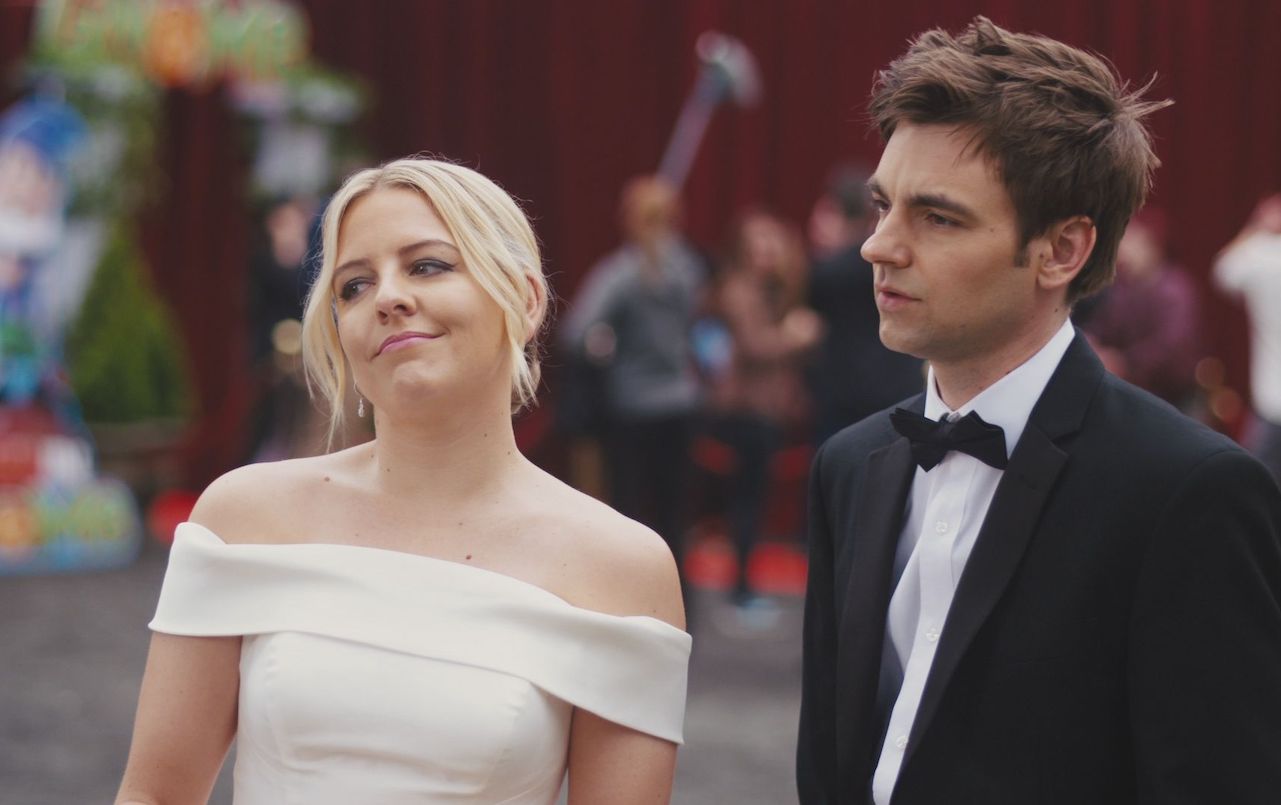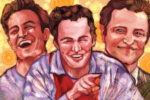Anti-hero dramas are so last decade. As Chris Kelly and Sarah Schneider’s television comedy “The Other Two” helps demonstrate, the anti-hero sitcom has arrived in style.
This genre arguably traces its origins to the self-absorbed protagonists of “Seinfeld.” In the ‘90s, audiences clamored over George’s compulsive lying and Elaine’s neurotic behavior.
Recent years have also given rise to a new wave of conceited-yet-irresistible comedy characters. Mike Schur’s sitcom “The Good Place” features a self-described “trash-bag” who awakes one day in an idyllic paradise. In a similar vein, Billy Eichner and Julie Klausner’s titular “Difficult People” are easy to love/hate.
“The Other Two” is the next entry in this wave of comedies about morally ambiguous, yet loveable characters. The series follows the rise of teen pop star “ChaseDreams,” but the showrunners frame most of the action around the lives of his less glamorous siblings.
Drew Tarver plays Cary, a 30-something aspiring actor. Heléne Yorke portrays Brooke, a former professional dancer who presently floats from job to job. Neither are particularly successful in their personal or professional lives, but they remain glued together through genuine care for their family.
Directors Kelly and Schneider tackle the inauthenticity of the Hollywood celebrity, but they also examine the day-to-day misadventures of those who live adjacent to the cute and famous.
Carey and Brooke are both proud of and concerned for their precocious little brother, and they provide scenes of sobriety — and hilarity — as Chase falls deeper and deeper into the rabbit hole of Hollywood sleaze.
Each episode focuses on a different milestone in the pop sensation’s career. For example, “Chase Goes to a Premiere” delves into Chase’s first taste of glitz at a film premiere. “Chase Gets a Girlfriend” skewers how Hollywood couples can be so puppeteered by their managers that it borders on absurdity.
Kelly and Schneider each have extensive backgrounds in comedy writing. Both were writers on “Saturday Night Live” (SNL) for several years. After leaving “SNL,” Kelly wrote and directed “Other People,” a 2016 dark comedy about a writer-comedian returning to his Michigan home to look after his dying mother. Moreover, most millennials would recognize Schneider for her work on the sketch comedy website CollegeHumor.
This tag-team duo creates a sitcom that is engaging, if not always original. The titular siblings in “The Other Two” cannonball their way through life in a way that echoes the hedonistic gal pal dynamic in “Broad City.” Likewise, their narcissistic, fame-grabbing tendencies can sometimes echo the self-serving “Difficult People” to the point of near-plagiarism.
Still, Kelly and Schneider infuse “The Other Two” with enough to heart to make a potentially derivative show feel fresh. A narrative undercurrent runs through the first batch of episodes about the Dubeks’ father’s recent death.
Without spoiling the big twist — because “The Other Two” pulls it off so deftly at the end of the first season that spoiling it would be a shame — the father died in a decidedly unheroic manner. The two older Dubeks shield Chase from ever learning the true cause of their father’s death out of fear of how much embarrassment the information may cause him.
This narrative thread provides for an interesting dynamic. Cary and Brooke must accept that their little brother is growing up at hyper-speed, but they also hold onto how Chase is still a child in many ways.
Instead of choosing to write Cary and Brooke as total egomaniacs, Kelly and Schneider color the siblings with both selfless and selfish traits. For instance, after her little brother experiments with alcohol in “Chase Turns Fourteen,” Brooke carries Chase on her shoulders all the way home.
In “Chase Gets the Gays,” the teen star ignites controversy by writing a song about Cary’s sexuality. Instead of lashing out at Chase for outing him to the public, Cary instead directs his anger at Chase’s managing team for greenlighting the song in the first place.
Cary and Brooke genuinely care for their family, and this sympathetic trait differentiates the siblings from the narcissistic duos in “Broad City” or “Difficult People.” When the characters are not sleeping with strangers or capitalizing on Chase’s newfound fame, they are spending time hanging out with each other and with their family.
Wisely, Kelly and Schneider rarely portray the siblings fighting amongst themselves. The 10 episodes make clear that the conflict — and humor — of “The Other Two” stems from the absurdity of millennial hot messes interacting with an odd and exaggerated world of fame, not intra-family politics.
Aside from the main protagonists, other standout performances in the first season include Molly Shannon as the Dubek matriarch, Pat. Shannon plays an overzealous mother, who becomes enthralled with Chase’s success.
She is sprightly and gleeful, and Shannon’s performance evokes the attitude of a go-getter mother who would have “Live, Laugh, Love” embroidered on a throw pillow on her living room couch.
Even the teenaged boy at the eye of the storm — Case Walker, who plays Chase — delivers an impressive and earnest performance. Walker plays the boy wonder with a certain wide-eyed innocence, and he delivers his lines without guile.
The show does not aim to portray how fame corrupts Chase into an egotistical tyrant. This kid is a lot more “Leave it to Beaver” than Joffrey Baratheon.
Unfortunately, not all the performances in “The Other Two” reach the same heights. Ken Marino, who plays Chase’s materialistic manager, Streeter, falls flat. Aside from exemplifying the vanity and corruption of Hollywood, Streeter does not have any compelling character details.
Similarly, Marino’s line delivery is stilted and one-dimensional. The other secondary characters — from Cary’s stereotypically Jewish agent to Brooke’s dopey ex-boyfriend — come across more as one-note gags than rounded people.
Cary aptly summarizes his and Brooke’s status at the beginning of Episode 9, “Chase Drops His First Album,” where they prepare to board a flight to attend Chase’s first album drop. “If this plane goes down,” he jokes, “the headline will read: Chase, comma others, dies in crash. We are comma, others.”
Kelly and Schneider have crafted a clever comedy about these “comma, others.” By balancing their main characters with both sympathetic and unsympathetic traits, the directors have created compelling anti-heroes to cushion a plot about Hollywood duplicity. Laugh all you want, and then chase the cynicism down with something more earnest.
“The Other Two” airs on Comedy Central and was renewed for a second season February of this year.
















